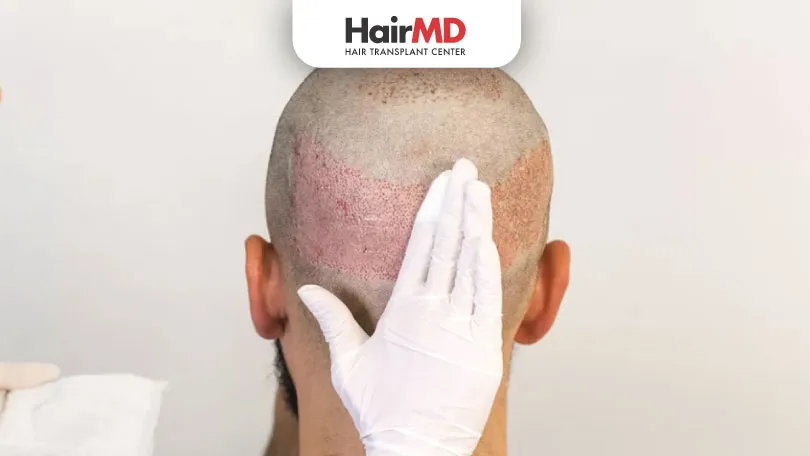21st Nov, 2024

This article explores the reasons behind such recommendations, the crucial role of medical treatments in stabilizing hair loss, and strategies for long-term management. It aims to educate readers on making informed decisions, guided by insights from a dermatologist’s perspective.
What’s covered in the article?
- Why Hair Transplants Are Often Avoided Before Age 20
- Importance of Medical Treatments to Stabilize Hair Loss
- Tips for Choosing the Right Clinic and Surgeon
- Realistic Expectations and Long-Term Management
- Conclusion
Why Hair Transplants Are Often Avoided Before Age 20
Hair transplants are typically avoided in individuals under 20 because their hair loss pattern has often not stabilized. At this age, predicting the future pattern and extent of hair loss can be difficult. Young patients may still experience significant changes in their hair density and baldness over time. Opting for a transplant too early can lead to less effective outcomes, as transplanted hair may not align well with future hair loss patterns.
For patients under 20, the focus is typically on preserving their existing hair. Treatments aim to slow down hair loss, allowing time for the hair loss pattern to become clearer, which aids in planning for potentially more effective transplant procedures in the future.
Psychological Impact of Hair Loss on Young Individuals
Hair loss at a young age can significantly affect self-esteem and confidence. It is essential to address these psychological aspects and seek support from mental health professionals if needed. Open conversations with friends and family can also help alleviate emotional distress, making the journey more manageable.
Importance of Medical Treatments to Stabilize Hair Loss
Medical treatments play a critical role in managing hair loss, particularly in young patients. These treatments can help stabilize hair loss, making hair transplants more effective when they are eventually pursued. Key medications include:
- Finasteride: This oral medication helps decrease hair loss and improve hair density by blocking the hormone responsible for hair thinning.
- Minoxidil: Applied topically, this medication can enhance hair regrowth and slow down hair thinning.
- Nutritional Supplements: Vitamins and minerals such as biotin, zinc, and iron can support hair health and complement medical treatments.
- Platelet-Rich Plasma (PRP) Therapy: This involves injecting concentrated platelets into the scalp to stimulate hair growth and improve hair follicle health.
These treatments, under the guidance of a dermatologist, are essential for maintaining existing hair and maximizing the results of a future hair transplant.
Tips for Choosing the Right Clinic and Surgeon
When considering a hair transplant, selecting the right clinic and surgeon is crucial. Look for clinics with a proven track record, such as HairMD Pune, known for their expertise and patient care. Ensure that the surgeon is qualified, experienced, and transparent about the procedure, potential outcomes, and risks involved. Consultation with multiple clinics can provide a broader perspective and help in making an informed choice.
Realistic Expectations and Long-Term Management
Setting realistic expectations is crucial for patient satisfaction. Understanding that hair transplants can improve appearance but may not perfectly restore one’s original hair density is important. Long-term management strategies include:
- Consistent Medical Treatment: Continuing with prescribed medications and therapies is vital to slow down hair loss.
- Regular Monitoring: Regular check-ups with a dermatologist to assess hair health and adjust treatments as needed.
- Lifestyle Adjustments: Adopting a healthy lifestyle with a balanced diet, regular exercise, and stress management techniques can support hair health.
Do You Know?
Nearly 250 Patients Visit HairMD
Everyday For Various Hair Concerns?
(Your journey to healthier and fuller hair starts here!)
Meet Our Dermatologists
Conclusion
For young individuals considering a hair transplant, understanding the complexities of hair loss and the importance of medical treatments is crucial. While hair transplants can offer profound results, they should be approached with caution in younger patients. By focusing on medical treatments and long-term management strategies, young patients can better prepare for successful hair restoration, ensuring they make the most informed decisions for their hair health. Always consult a qualified Dermatologist in Pune to guide you through this journey and tailor treatments to your specific needs. Embrace the journey with realistic expectations and the support of skilled professionals.
Further Reading
Ethical Hair Transplant Practices – Why HairMD Pune Is Trusted?
Discover what ethical hair transplant practices look like and why patients trust HairMD Pune. Learn to spot red flags, verify surgeon credentials, and make informed decisions for your hair restoration journey
Low-Cost Hair Transplant Clinics in Pune – Risks & Warnings
Discover why ultra-low-cost hair transplants in Pune are dangerous. Learn red flags, true costs, and how to verify surgeon credentials before risking your scalp health.
Top Hair Growth Treatments for Women: Your Ultimate Guide
Find effective hair regrowth treatments for women. Explore solutions like PRP, medications, and more to combat hair loss with expert advice from HairMD.
FUE vs FUT Hair Transplant – Pune Specialists Compare
Compare FUE vs FUT hair transplant techniques, costs, recovery, scarring, success rates, and ideal candidates. Learn which method suits you best in Pune.
Have thoughts? Please let us know
We are committed not only to treating you, but also educating you.










